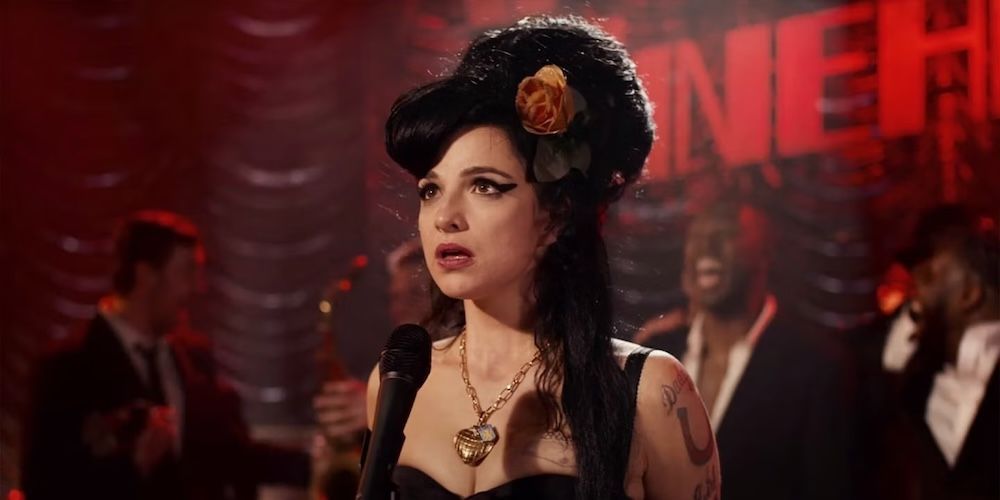
Review: Back to Black (2024)
“I want people to hear my voice and just forget their troubles for five minutes,” Amy Winehouse (Marisa Abela) says in voiceover as she runs down a London street. It’s the kind of sentiment one would expect from a big-budget popstar biopic of a figure mired in tragedy and unrepentant substance abuse. But this recounting of Winehouse’s life is also a Sam Taylor-Johnson movie, so all is not what it seems.
As the opening begins to warrant eye-rolling, Taylor-Johnson cuts to Winehouse reading these words from a diary entry she wrote as a teenager, leaving us to wonder how someone so in thrall to adolescent cliché ended up producing one of the most emotionally raw records in rock history. Rather than ripped-from-the-headlines melodrama, we see Winehouse interacting with her beloved nan (Lesley Manville), who would also become the primary inspiration for her grandaughter’s hybrid of fifties glamor, blues, and R&B–the pioneering sound that paved the way for the likes of Lana Del Rey and Taylor Swift’s more managed eras.
Most famous for her photography in Interview magazine, Taylor-Johnson has always been more interested in interrogating iconography than succumbing to tawdry self-seriousness. Such makes her a rightful heir to that publication’s founder, Andy Warhol. Consequently, her work often provokes hostility from critics who can’t see beneath the surface. Such is why her Fifty Shades of Grey remains a punchline a decade after its release even though it's a movie about the reality of corporate power on par with The Social Network.
Back to Black has no patience for dramatizing hard drug use and bulimia. We had our fill of that in the years before Winehouse’s untimely death. Instead, Taylor-Johnson offers an astute exploration of pop mythos that elevates the traditional above the tabloid nihilism that probably would have garnered it much better reviews.
